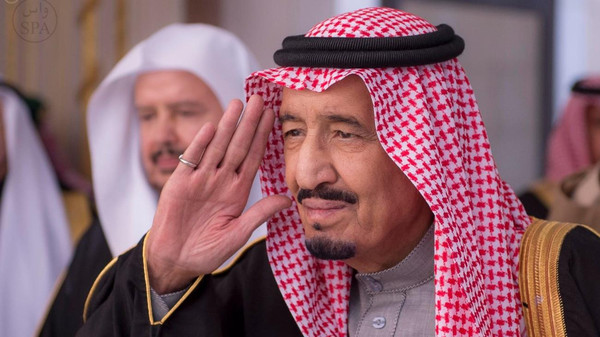 Under the new Saudi king, relations between Saudi Arabia and Iran are expected to remain unchanged as their rivalry in the Middle East region continues, say experts.
Under the new Saudi king, relations between Saudi Arabia and Iran are expected to remain unchanged as their rivalry in the Middle East region continues, say experts.Relations between Saudi Arabia and Iran are likely to remain unchanged under the new Saudi leadership, according to experts.
"At this stage, it is not possible that the relations between the two countries will get better," Ahmad Purnejati, a former member of Iran's parliament told The Anadolu Agency.
Saudi King Salman bin Abdulaziz Al Saud, 79, succeeded his half-brother King Abdullah bin Abdulaziz Al Saud last Friday with his demise after reigning the country for almost two decades.
The president of Iran, Hassan Rouhani, extended his condolences to King Abdullah's royal family and the people of Saudi Arabia on Jan. 23, and congratulated King Salman on his succession.
Despite the sour relations of the regions' two rivals, Foreign Minister of Iran, Mohammad Javad Zarif, also paid a visit to Saudi Arabia on Jan. 24 to offer his condolences for the king's death.
After the Islamic Revolution of 1979, Iran accused Saudi Arabia of being pro-Western with close ties with the U.S., while the Saudis are concerned with Iran spreading its revolutionary ideas and its influence across the Gulf region.
While the Sunni Saudi Arabia and the Shia Iran both aspire to lead the Islamic world, Saudi Arabia also perceives Iran's financial aid to Syria and its nuclear research program as threats to the region.
"When it comes to regional politics, King Salman is more radical than the former King Abdullah," said Purnejati, stressing that the relations of the two nations within the Organization of the Petroleum Exporting Countries, OPEC, is significant.
"If the two countries cooperate in preventing falling oil prices and in bringing a balance to the market, this can create a rapprochement between the two nations," he added.
As both countries are members of OPEC, Saudi Arabia refused to make oil production cuts while Iran advocated to limit oil output in the face of falling oil prices since June.
The oil cartel decided not to cut production at its annual meeting on Nov. 27, 2014.
Saudi Arabian Oil Minister Ali al-Naimi stated on Dec. 21, 2014 that the kingdom will continue to produce oil even if the prices fall to $20 per barrel.
Iranian officials have voiced their concerns many times that OPEC's refusal to trim output is a political strategy to corner Iran in Middle Eastern affairs.
On Jan. 13, Rouhani claimed that low oil prices are "a plot", adding that if Iran suffers from the price slump, Saudi Arabia will suffer more, as its budget is highly dependent on oil exports.
Iran's Oil Minister Bijan Zangeneh stated on Jan. 19 that the country is in talks with other OPEC members' governments but the 12-member oil cartel has not yet decided on holding an emergency meeting.
Ali Tayebnia, Iran's minister of economic affairs and finance, stressed on Jan. 20 that the government will not have any problems running the budget even if oil prices fall to $25 per barrel.
"The relations between the two countries will not change if Iran does not transform its foreign policies," said Mihirdad Firehmend, acclaimed journalist and author on Middle East issues.
"However, Iran is more willing to improve bilateral relations," he added, stressing that the rivalry between the two nations is deeper than it looks.
By World Bulletin
The Iran Project is not responsible for the content of quoted articles.










